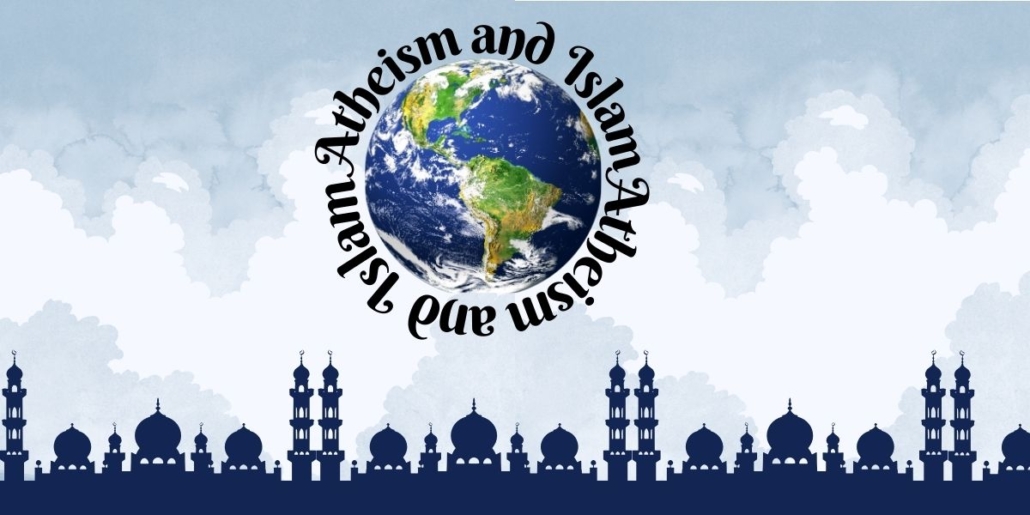Atheism isn’t typically considered a religion; rather, it’s a lack of belief in gods or deities. However, some atheists organize into groups or communities to discuss their beliefs, ethics, and worldviews. Comparing atheism and Islam involves contrasting their beliefs, practices, and perspectives on various aspects of life.
Beliefs about the Existence of God
- Atheism: Atheists do not believe in the existence of gods or supernatural beings. They often rely on scientific evidence, reason, and critical thinking to explain natural phenomena and the origins of the universe.
- Islam: Islam is monotheistic, affirming the existence of one God, Allah. Belief in Allah as the creator, sustainer, and ultimate authority is central to the Islamic faith. Muslims derive their understanding of God from the Quran, Hadith, and Islamic theology.
Role of Religion in Life
- Atheism: Atheists typically reject the idea of organized religion and divine authority. They often prioritize reason, evidence, and humanistic values in shaping their worldview and moral framework.
- Islam: Islam encompasses all aspects of life, including faith, worship, ethics, law, and social interactions. Muslims believe that adherence to Islamic principles leads to spiritual fulfillment and guidance in both personal and communal affairs.
Source of Morality and Ethics
- Atheism: Atheists derive their moral principles from secular sources such as empathy, compassion, human rights, and societal consensus. They reject the notion that morality requires belief in a divine being or adherence to religious doctrine.
- Islam: Muslims believe that morality is grounded in divine revelation, primarily the Quran and the teachings of the Prophet Muhammad (peace be upon him). Islamic ethics encompasses a comprehensive moral code that guides behavior, relationships, and societal interactions.
Afterlife and Purpose of Existence
- Atheism: Atheists generally do not believe in an afterlife or supernatural realm. They often emphasize the importance of making the most of this life and finding meaning and purpose through personal fulfillment, relationships, and contributions to society.
- Islam: Islam teaches that life on Earth is a test, and the ultimate purpose of existence is to worship Allah and seek His pleasure. Muslims believe in an afterlife where individuals will be held accountable for their actions and rewarded or punished accordingly.
Community and Rituals
- Atheism: While there are atheist communities and organizations, atheism itself does not prescribe specific rituals or communal practices. Atheists may gather for discussions, events, or social activities based on shared interests and values.
- Islam: Islam places great emphasis on communal worship, including the five daily prayers, congregational gatherings for Friday prayers, and communal celebrations such as Eid. Muslims also observe various rituals and practices, including fasting during Ramadan, giving charity, and performing Hajj pilgrimage.
Conclusion
In summary, while atheism and Islam represent distinct worldviews and belief systems, they both offer perspectives on life’s purpose, morality, and existential questions. Atheism emphasizes reason, evidence, and humanistic values, while Islam centers on faith in Allah, adherence to divine guidance, and communal worship. Despite their differences, both atheism and Islam contribute to the diversity of thought and belief in the world.
